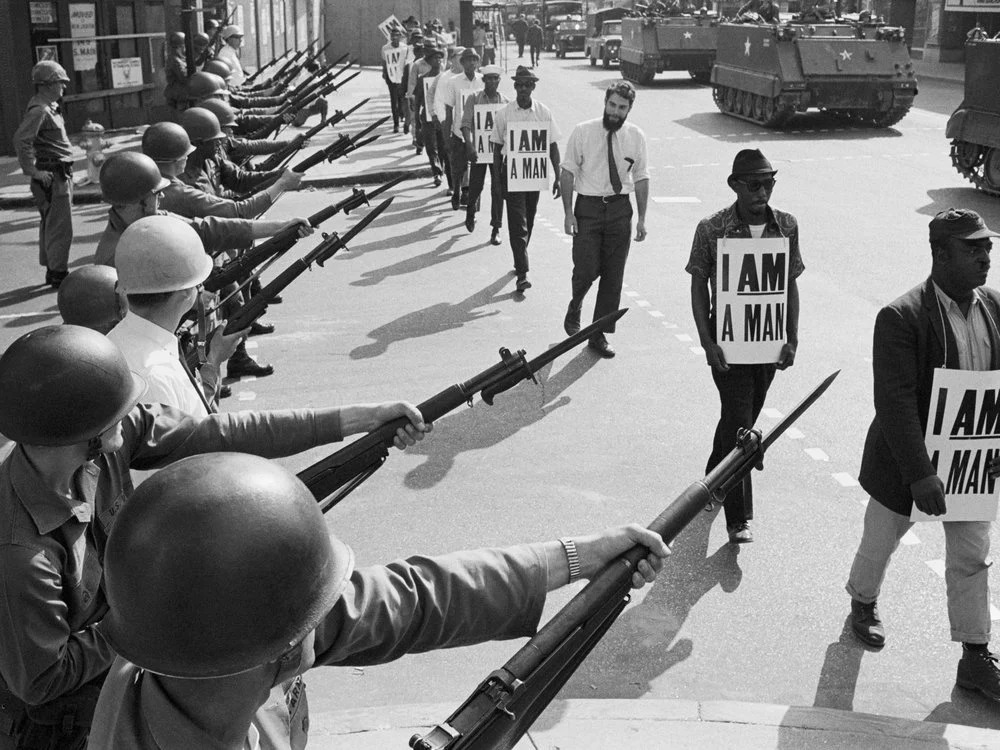At the time of his assassination on April 4, 1968, Martin Luther King, Jr. was supporting striking sanitation workers in Memphis, Tennessee. The strike began after two workers were crushed to death by a faulty garbage compactor that the company knew was a danger to workers. On February 12, 1968, 1,300 sanitation workers walked off the job to demand better wages, paid overtime, safety protocols, a grievance procedure to combat the blatant racism of white managers, and union recognition.
For months, the primarily Black workforce protested horrendous working conditions and racism. Workers received a meger $0.65 per hour; many were forced to rely on second jobs, welfare, and food stamps to survive. Additionally, the mayor of Memphis actively suppressed their right to unionize–though workers had been organized in the American Federation of State, County, and Municipal Employees since 1964, the city refused to recognize the union or workers’ protections. When the workers walked off the job in February, the city declared the strike illegal and sent the riot police to repress them as they led marches of thousands of people through the city.
As the strike entered its second month, the city hired strikebreakers to harass workers, and trash piled up on Memphis’s streets. MLK and other civil rights leaders visited the striking sanitation workers. They brought with them international support and drew tens of thousands of people into the streets to be in solidarity with the striking workers. As MLK said in support of the workers, “The person who picks up our garbage, in the final analysis, is as significant as the physician, for if he doesn’t do his job, diseases are rampant. All labor has dignity.”
On April 3, MLK returned to Memphis to rally the striking workers. There he gave his famous “I’ve Been to the Mountaintop” speech to a crowd of tens of thousands of people. The next day King was murdered by the state; his death only intensified the resolve of the strikers and brough more people into the streets in solidarity. By mid-April, the strike was over. The workers won wage increases and union recognition from the city.
Contrary to his two-dimensional portrayal in bourgeois history books, MLK saw the deep connections between racism and class exploitation in capitalist society. Particularly in the last decade of his life, he argued that the labor movement and the civil rights movement needed to unite and fight together because their interests were one and the same. As he said in a speech at the AFL-CIO Convention in 1961:
“Our needs are identical with labor’s needs — decent wages, fair working conditions, livable housing, old age security, health and welfare measures, conditions in which families can grow, have education for their children and respect in the community. That is why Negroes support labor’s demands and fight laws which curb labor. That is why the labor-hater and labor-baiter is virtually always a twin-headed creature spewing anti-Negro epithets from one mouth and anti-labor propaganda from the other mouth.”











